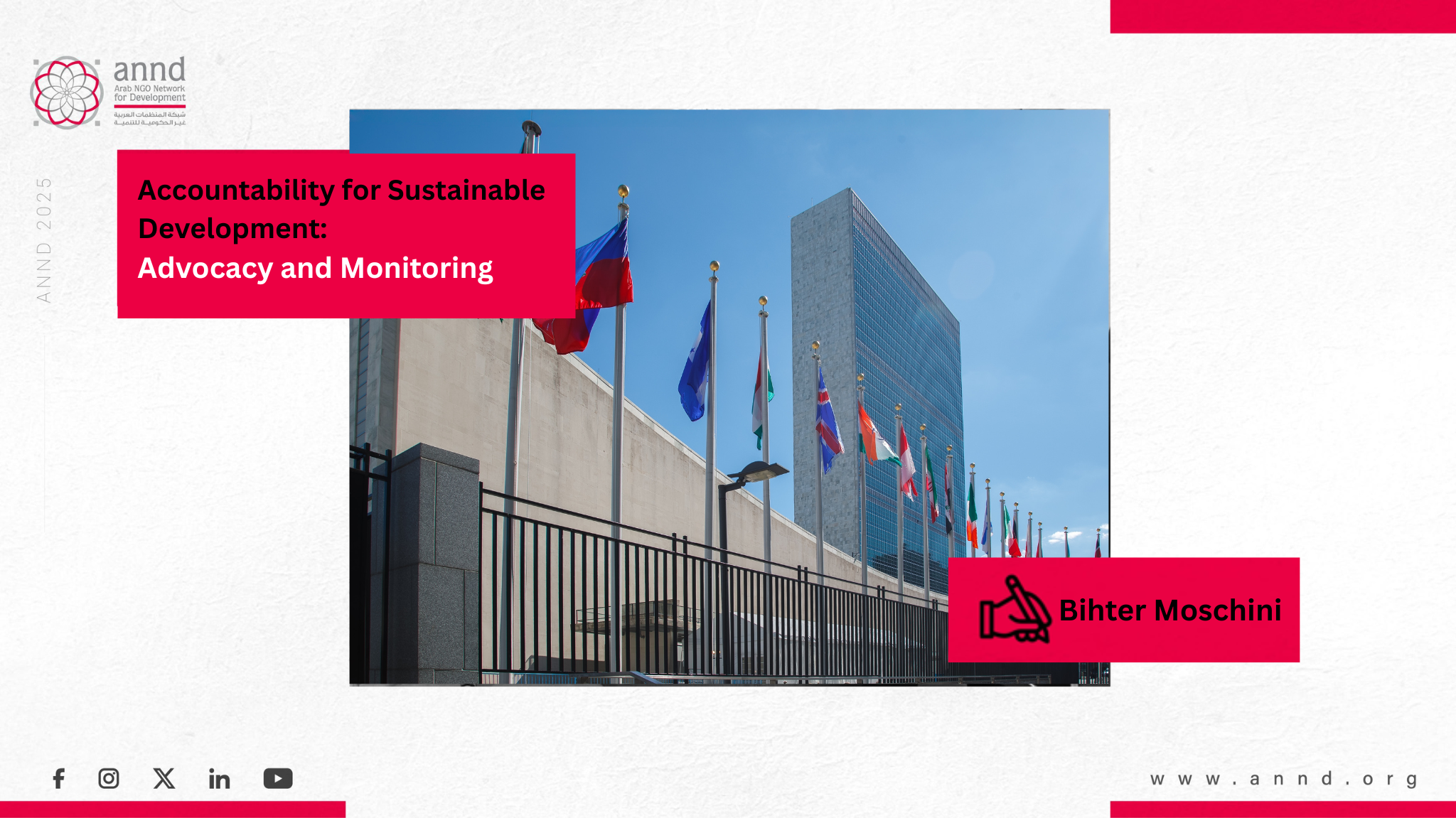
Accountability for Sustainable Development: Advocacy and Monitoring – Bihter Moschini

Accountability for Sustainable Development: Advocacy and Monitoring – Bihter Moschini
The UN High-Level Political Forum (HLPF) is the official global
monitoring platform for the implementation of Agenda 2030. From 14 to 23 July
2025, under the theme “Advancing sustainable, inclusive, science- and
evidence-based solutions for the 2030 Agenda for Sustainable Development and
its Sustainable Development Goals (SDGs) for leaving no one behind”, the Forum
convened in New York. This year’s review focused on Goals 3 (Good Health and
Well-Being), 5 (Gender Equality), 8 (Decent Work and Economic Growth), 14 (Life
Below Water), and 17 (Partnerships for the Goals). At its conclusion, member
states adopted a 130-paragraph Ministerial Declaration by a vote of 154-2-2,
with the United States and Israel voting against and Paraguay and Iran
abstaining. The Declaration included three sections; an opening section titled,
"Current trends, challenges and their impacts on accelerating the
implementation of the SDGs"; a section outlining priority actions for
advancing sustainable, inclusive, science- and evidence-based solutions for the
2030 Agenda for Sustainable Development, with five sub-sections outlining
specific actions under review at HLPF 2025; and a final section on the Voluntary
National Reviews (VNRs).[1]
For civil society, HLPF weeks are intense marked by Declaration
negotiations, voting moments, side events, mobilizations, and
cross-constituency networking. These days evidently offer visibility and
political attention to the SDGs. Yet, civil society advocacy for Agenda 2030
must go beyond the spotlight of HLPF; it should be through continuous and
systematic engagement and at multiple levels.
In this regard, each year, at national level ANND supports civil society in VNR countries by building coalitions and mobilizing networks, documenting challenges and producing alternative civil society reports, providing capacity-building and sustained knowledge-sharing and engaging as NGO Major Group organizing partner and member of the VNR Task Force, coordinating civil society input from VNR countries. These efforts strengthen knowledge exchange, foster collective mobilization, and ensure that civil society contributions are holistic, extending beyond the SDGs under review. The process culminates in a common civil society statement delivered at the HLPF.
At the regional level, the annual Regional Civil Society Forum[2], organized ahead of the Arab Forum on Sustainable Development (AFSD), remains a milestone. Held in hybrid format to widen participation, it serves as a space for joint strategizing on sustainable development challenges and alternatives. The 2025 pre-AFSD Forum stressed the urgent need to mobilize civil society regionally, advancing an alternative development paradigm: one that challenges systemic inequalities, entrenched power imbalances, and intensifying proxy wars. It called for a just, people-centered, peace-driven global order. This call is particularly critical with only five years left until 2030 and structural obstacles for achieving sustainable development worldwide remain severe: just 17% of SDG targets are on track, while developing countries face unsustainable debt burdens, shrinking fiscal space, and a staggering $4 trillion annual SDG financing gap.
Building on local realities and translating them into common
strategies at the regional level, ANND mobilizes civil society for
international advocacy as well and that extends beyond the HLPF. This
engagement is often connected to other human rights monitoring mechanisms such
as the Universal Periodic Review, Treaty Body reviews, and other international
processes; for example, the forthcoming World Summit for Social Development II
and COP30.
For civil society, advocacy is not limited to thematic
interventions. They cut across all policy domains, from trade and finance to
climate, migration, and development. Calls for peace, the right to development,
closing the persistent gap between human rights standards and their
implementation, ensuring mutual accountability, and reforms in global
governance, challenging power structures that prioritize capital and profit
over people and the planet, inclusive social dialogue, transparency and enabling
environment for civil society are fundamental for addressing inequalities and
injustices we face from all interlinked policy processes.
Therefore, HLPF and other global fora must no longer be spaces of
rhetorical reaffirmation but spaces where all development actors commit to
measurable change towards achieving them. Ultimately, achieving sustainable
development demands genuine policy coherence for development and a decisive
shift from symbolic commitments to concrete actions. Accountability is central
to this process, requiring continuous monitoring and multi-level advocacy. In
this regard, the role of civil society is not only indispensable but must be protected,
promoted and strengthened.
Recent publications

